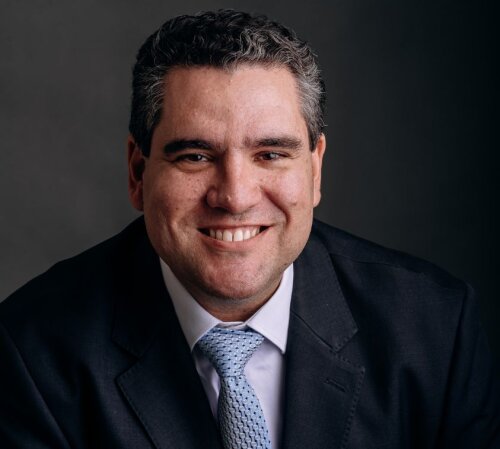Best Child Custody Lawyers in Praia Grande
Share your needs with us, get contacted by law firms.
Free. Takes 2 min.
Free Guide to Hiring a Family Lawyer
List of the best lawyers in Praia Grande, Brazil
About Child Custody Law in Praia Grande, Brazil
Child custody, or "guarda de filhos," refers to the legal responsibility for the care and upbringing of children when parents separate or divorce. In Praia Grande, Brazil, as in the rest of the country, child custody is governed by the Brazilian Civil Code and the Child and Adolescent Statute (Estatuto da Criança e do Adolescente - ECA). The law prioritizes the best interests of the child, ensuring their physical, psychological, and emotional well-being. Custody arrangements can be negotiated by parents or, in the absence of agreement, determined by the local Family Court (Vara de Família).
Why You May Need a Lawyer
Legal representation in child custody cases can be crucial for several reasons. Common situations where you may need a lawyer include:
- Disagreements about who should have primary or shared custody of children after a separation or divorce
- Concerns about a child's safety with one parent or evidence of abuse or neglect
- Complex situations involving relocation to another city, state, or country
- Cases where one parent is denied access or visitation to the child
- Adjusting custody arrangements due to changes in family circumstances
- Disputes involving grandparents' visitation rights
- When the child expresses a strong preference to live with one parent
Navigating the legal process without professional guidance can be difficult. A lawyer can help protect your rights and ensure that your child's best interests are represented in court.
Local Laws Overview
Praia Grande follows national Brazilian legislation for child custody, but certain local practices and the interpretation by local judges can influence outcomes. Here are key aspects to understand:
- The principle of the best interests of the child always guides custody decisions
- Joint custody ("guarda compartilhada") is favored by law unless one parent is proven unfit
- Sole custody ("guarda unilateral") is only granted when joint custody is not in the child's best interest
- Both parents retain legal responsibility for decisions regarding education, health, and well-being, even if the child primarily lives with one of them
- Mediation is encouraged to help parents reach an agreement, but the Family Court will intervene if necessary
- The child's own wishes are taken into account, especially if old enough to express them
- International custody disputes or abduction cases are addressed under the Hague Convention, to which Brazil is a signatory
Understanding these aspects can help you prepare for the legal process in Praia Grande and anticipate how your case might be handled.
Frequently Asked Questions
What is the difference between joint and sole custody in Praia Grande?
Joint custody allows both parents to share decisions and responsibilities concerning the child, whereas sole custody grants this authority to only one parent. The law prefers joint custody unless there are compelling reasons not to.
Who decides child custody if the parents cannot agree?
If parents cannot reach a mutual agreement, the Family Court in Praia Grande will make a decision based on the child's best interests.
Can grandparents or other relatives obtain custody?
Grandparents or other relatives can seek custody if both parents are deemed unfit, absent, or if it is in the best interest of the child. The court will always prioritize the child's welfare.
What factors does the court consider in custody cases?
The court considers the child's age, emotional bonds, history of care, the capacity of each parent to provide, the child’s own wishes (depending on age and maturity), and any evidence of risk, abuse, or neglect.
Can a custody agreement be changed?
Yes, custody agreements can be modified if there is a significant change in circumstances, such as a relocation, change in employment, or concerns about the child’s welfare.
Does the child's opinion matter in custody decisions?
Yes, the court may consider the child's opinion, especially if the child is deemed old enough and mature enough to express a reasonable preference.
Are mothers favored over fathers in custody decisions?
Brazilian law does not favor mothers over fathers. The decision is based on the best interests of the child, and both parents are considered equally capable unless there is evidence to the contrary.
How is child support determined alongside custody?
Child support ("pensão alimentícia") is determined separately from custody and is based on the child's needs and the financial capacity of the parent responsible for payment. The court calculates an appropriate amount considering these factors.
What if one parent wants to move to another city or country with the child?
Parental relocation requires the agreement of both parties or, in case of dispute, the authorization from the Family Court. The court will evaluate whether the move serves the child’s best interests.
How long does the custody process take in Praia Grande?
The duration varies according to case complexity, court schedules, and whether the parents reach an agreement. Uncontested cases may conclude within a few months, while contested cases can take longer.
Additional Resources
If you need support or information on child custody in Praia Grande, consider these resources:
- The Family Court (Vara de Família) of Praia Grande - handles custody and family law matters
- OAB Subsection Praia Grande - the local branch of the Brazilian Bar Association, which can help you find a qualified family law attorney
- Centro Judiciário de Solução de Conflitos e Cidadania (CEJUSC) - offers free mediation services for families
- Defensoria Pública do Estado de São Paulo - provides free legal assistance for those who qualify
- Conselho Tutelar - the local child protection council that safeguards children’s rights
Next Steps
If you are facing a child custody issue in Praia Grande, it is advisable to consult a specialized family law attorney. Start by gathering any relevant documents, such as birth certificates, school records, and evidence of the child's living situation. Consider making a list of your main concerns and objectives regarding custody. You can seek assistance from the OAB Praia Grande to find a reputable lawyer or, if eligible, apply for support through the Defensoria Pública. Mediation may be an option to seek an agreement out of court. Remain focused on what is in the best interest of your child and follow legal recommendations closely to ensure the best possible outcome for your family.
Lawzana helps you find the best lawyers and law firms in Praia Grande through a curated and pre-screened list of qualified legal professionals. Our platform offers rankings and detailed profiles of attorneys and law firms, allowing you to compare based on practice areas, including Child Custody, experience, and client feedback.
Each profile includes a description of the firm's areas of practice, client reviews, team members and partners, year of establishment, spoken languages, office locations, contact information, social media presence, and any published articles or resources. Most firms on our platform speak English and are experienced in both local and international legal matters.
Get a quote from top-rated law firms in Praia Grande, Brazil — quickly, securely, and without unnecessary hassle.
Disclaimer:
The information provided on this page is for general informational purposes only and does not constitute legal advice. While we strive to ensure the accuracy and relevance of the content, legal information may change over time, and interpretations of the law can vary. You should always consult with a qualified legal professional for advice specific to your situation.
We disclaim all liability for actions taken or not taken based on the content of this page. If you believe any information is incorrect or outdated, please contact us, and we will review and update it where appropriate.










